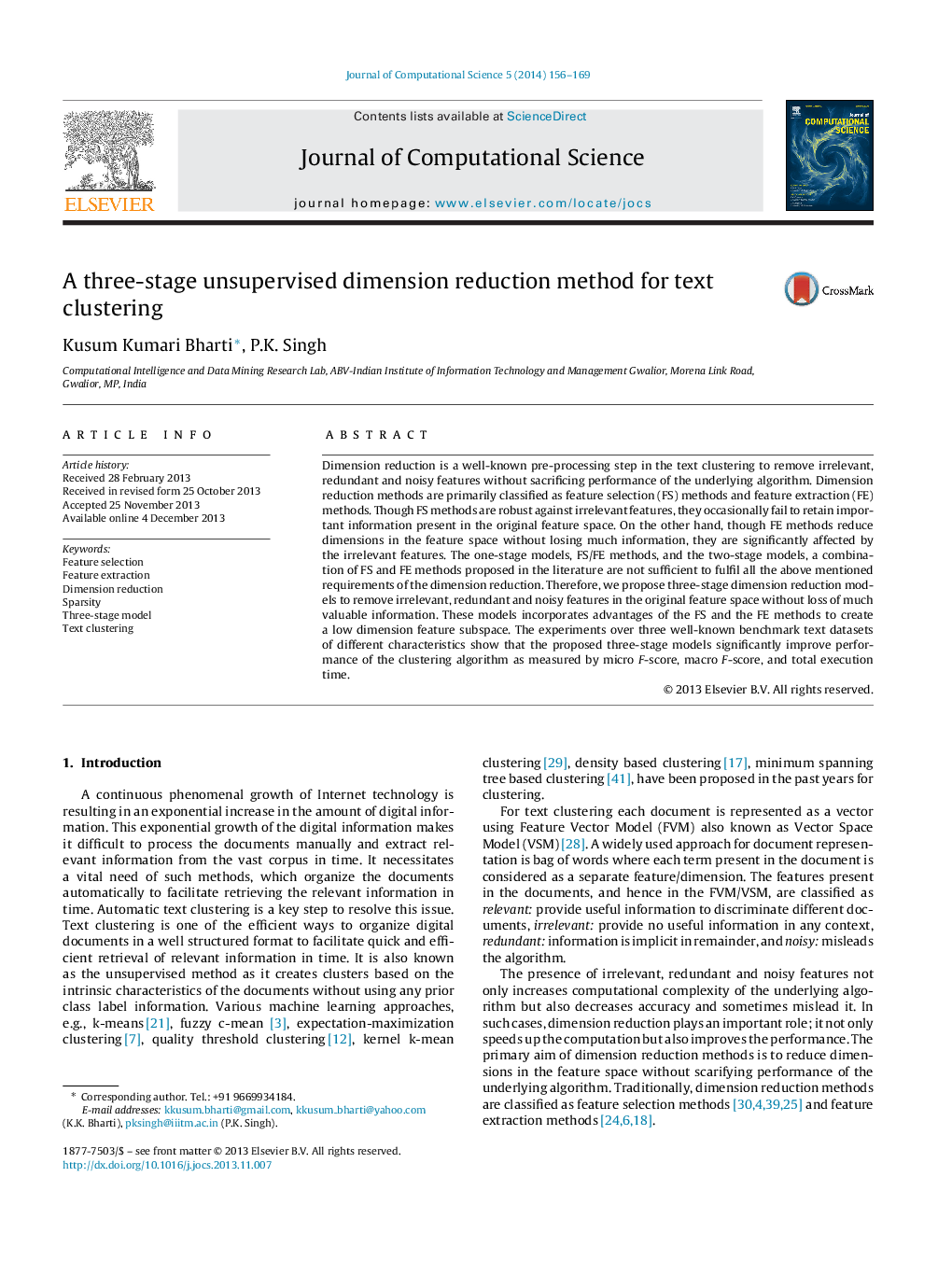| Article ID | Journal | Published Year | Pages | File Type |
|---|---|---|---|---|
| 429389 | Journal of Computational Science | 2014 | 14 Pages |
•We propose three-stage dimension reduction models to create informative feature subspace without losing much information.•We reduce dimensions in the feature space without sacrificing performance of the clustering algorithm.•We reduce the total execution time from dimension reduction to cluster creation. Additionally, we also reduce the average execution time to create clusters of documents.•We propose an effective measure to quantify sparsity of the datasets.
Dimension reduction is a well-known pre-processing step in the text clustering to remove irrelevant, redundant and noisy features without sacrificing performance of the underlying algorithm. Dimension reduction methods are primarily classified as feature selection (FS) methods and feature extraction (FE) methods. Though FS methods are robust against irrelevant features, they occasionally fail to retain important information present in the original feature space. On the other hand, though FE methods reduce dimensions in the feature space without losing much information, they are significantly affected by the irrelevant features. The one-stage models, FS/FE methods, and the two-stage models, a combination of FS and FE methods proposed in the literature are not sufficient to fulfil all the above mentioned requirements of the dimension reduction. Therefore, we propose three-stage dimension reduction models to remove irrelevant, redundant and noisy features in the original feature space without loss of much valuable information. These models incorporates advantages of the FS and the FE methods to create a low dimension feature subspace. The experiments over three well-known benchmark text datasets of different characteristics show that the proposed three-stage models significantly improve performance of the clustering algorithm as measured by micro F-score, macro F-score, and total execution time.
